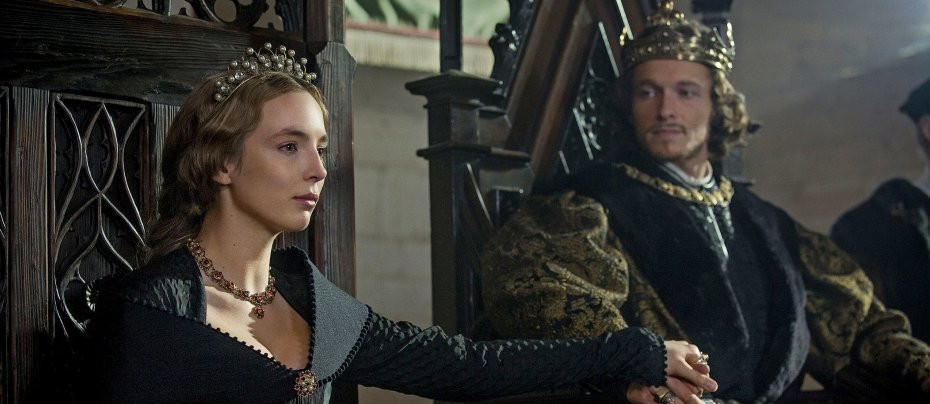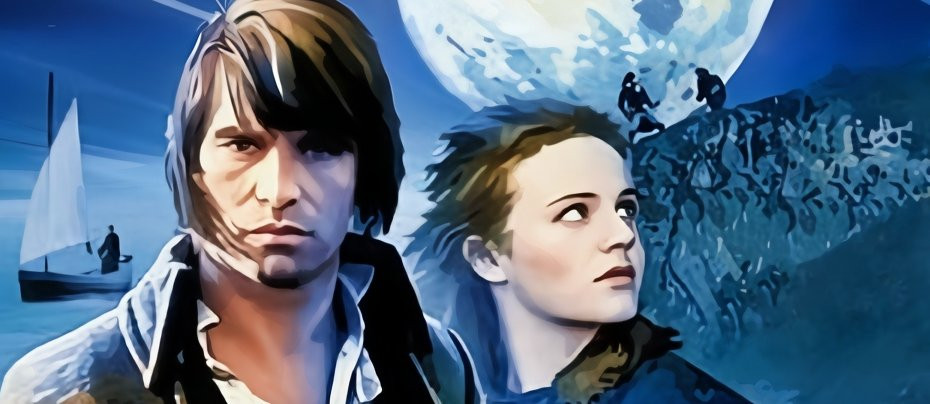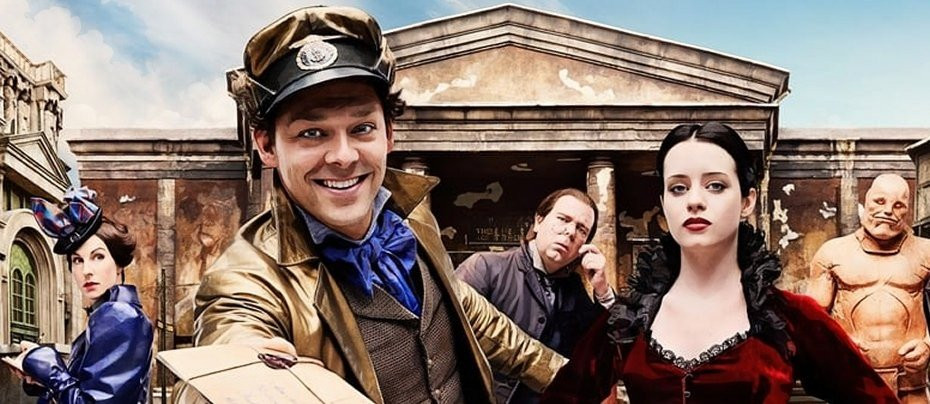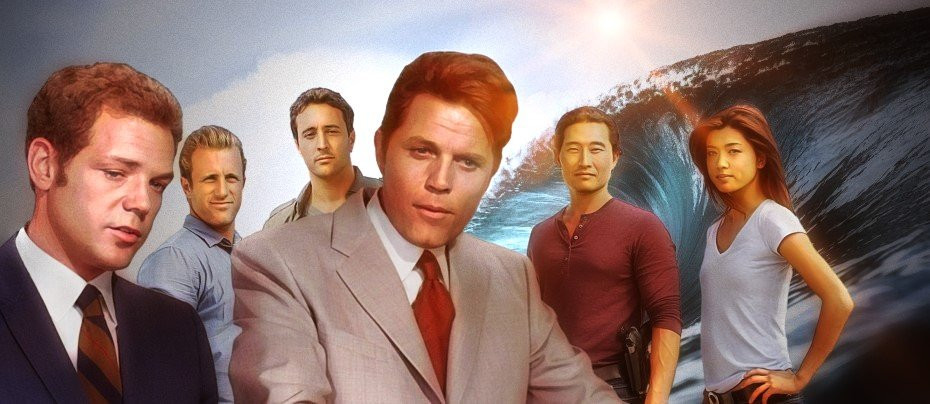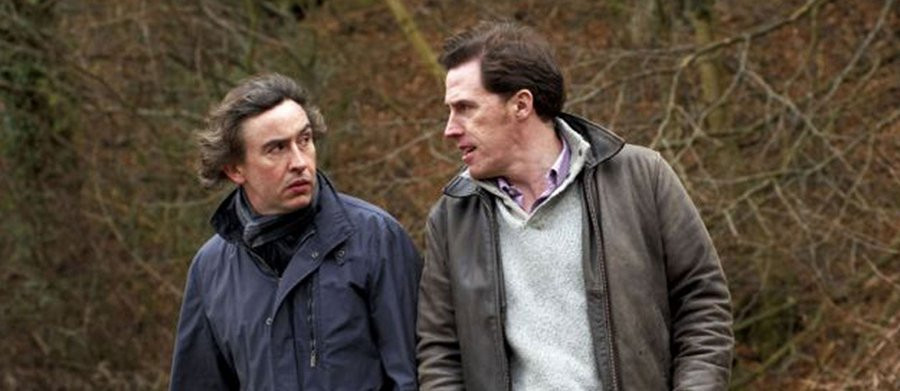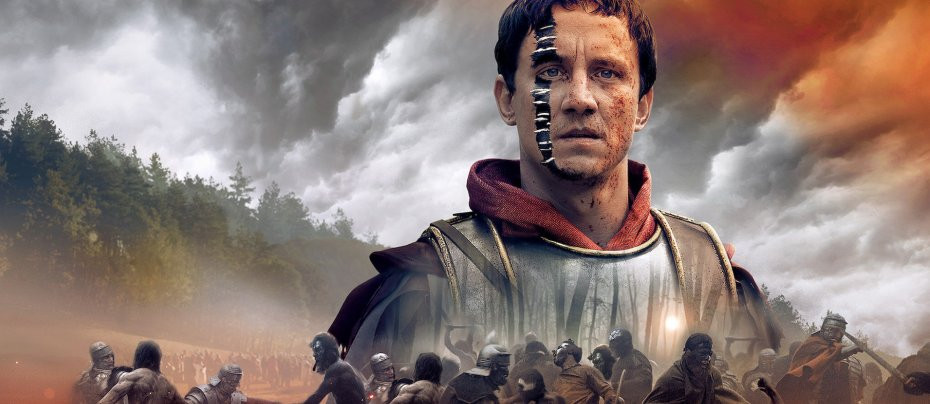
Spartacus: Blood and Sand
2010 - United StatesIt is impossible to improve on Charlie Brooker's one sentence summary: "If you're a 15 year old boy, chances are 'Spartacus: Blood and Sand' will strike you as the finest TV show ever made."
Its constant reliance on gratuitous swearing, CGI gore, and "soft porn" sex certainly seems to be aimed squarely at the male 13-30 demographic, and no one else. Yet, if they can find a way to ignore all that and stick with it for a little while, viewers of more sophisticated tastes might be surprised to find themselves enjoying a powerful human drama.
After all, the tragedy of Spartacus, an escaped gladiator who led a doomed slave rebellion against the late Roman Republic, is one of the great stories of history and is the basis of one of the great films of all time.

How can one better the Kubrick feature with Kirk Douglas? The television version does not even try. Instead it offers a completely different concept. It replaces the epic with the squalid, and the noble freedom fighter with an intelligent brute. On its own terms, it succeeds brilliantly and is in many ways far more believable than the heroic version.
This does not mean it is necessarily accurate. The television series Rome reminded us that the Republic was not all togas and baths and civilisation.
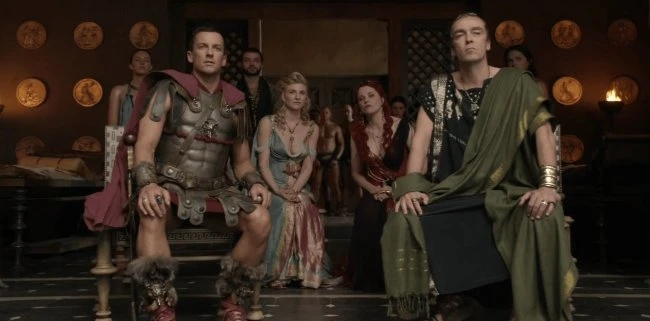
The Romans started out as earthy, rural folk and they conquered their Empire by naked force. Sex and violence were therefore part of their everyday life, and Spartacus: Blood and Sand is within its rights to point that out - and exploit it.
However, for obvious commercial reasons, it exaggerates. The sort of orgies depicted here belong to the later period of the Empire, and even then, were unusual except among the decadent upper classes. The time between that period and that of the late Republic is greater than that between internet pornography and Victorian Puritanism. Indeed, later Romans viewed their ancestors of the Republican period as we tend to view the Victorians.
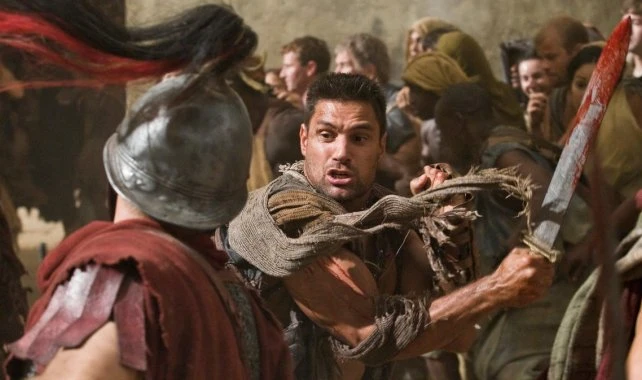
The violence is also exaggerated. Trained gladiators were an expensive commodity, so they were not usually fought to the death. However, anyone using the sort of faux Kung Fu moves portrayed in Spartacus: Blood and Sand would have been killed very quickly by a genuine gladiator. The Romans had built their Empire on the effectiveness of a simple block and thrust against the showy wide slashing of their barbarian opponents, and gladiators were experts in that technique.
This flexible attitude to history was only one of the things brought to 'Spartacus' by Executive Producer Rob Tapert from Xena: Warrior Princess. He also brought his experience working in New Zealand - even if 'Spartacus' missed one of the great advantages of that beautiful country by remaining entirely studio bound - and his wife, Lucy Lawless, who had played Xena.
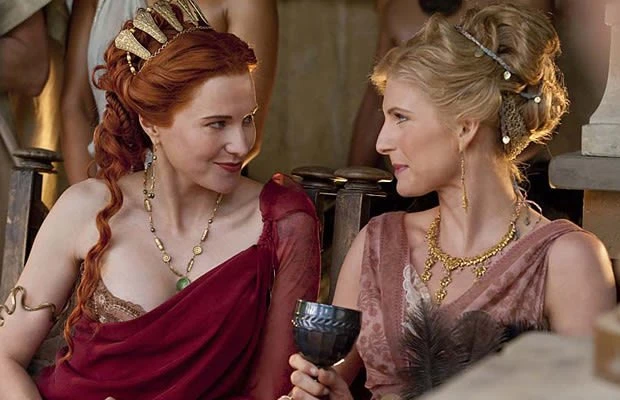
Lawless' involvement was both one of the worst and one of the best things about Spartacus: Blood and Sand. The worst thing was a loss of innocence for 'Xena' fans on seeing her undeniably well preserved charms displayed so copiously in simulated sex scenes. It was disappointing to see a feminist role model reduced to cheap pornography.
The best thing was her superb double act with the ever watchable John Hannah. As "lanista" (gladiator owner) Quintus Batiatus, Hannah excels as a character that would be just as recognisable today or in any other time and place as it was in the Roman Republic - the vulgar provincial nobody on the make. His wife Lucretia (Lawless) is both his equal and his accomplice in their shared ambition for money and every scrap of social status it brings. Their scheming is sometimes darkly comic, sometimes pathetic, and sometimes even poignant, because it is obvious to everyone but them that they are never going to be allowed to have what they crave.

So, in the midst of an exploitative show about gladiators, we find an unexpectedly credible portrait of a complex marriage and some sharp social commentary. There are moments when we almost feel sympathy for Quintus and Lucretia, because they really do love each other - but then we are reminded that these are dangerous people because it is their slaves who pay the price for their misadventures in the Roman class system.
There is a definite 'Upstairs, Downstairs' dynamic to the House of Batiatus. Downstairs, literally, are the slaves, most importantly the gladiators. Under the wise guidance of their formidable trainer or "doctore" Oenomaus (Peter Mensah), these generally accept their lot - until they are joined by an impulse buy on the part of Quintus, a Thracian prisoner of war with a huge grudge. We never learn his real name. We only ever hear the "stage name" his captors give him...
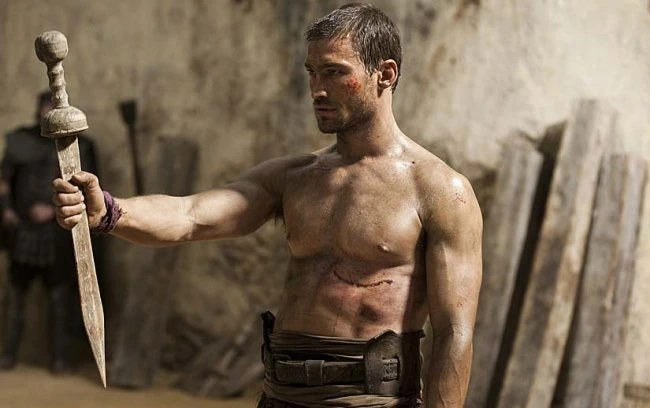
Yes, this is Spartacus, played by Andy Whitfield. It is a great tribute to Whitfield's presence and abilities as an actor that there is no doubt that he remains our protagonist: with a lesser actor, it could so easily have lapsed into The Quintus and Lucretia Show. Whitfield succeeds by maintaining a nice hint of ambiguity about his Spartacus: although he keeps our sympathy because he is a wronged man, he shows that he can be just as ruthless and cunning as Quintus.
Whitfield was diagnosed with a very serious cancer at the end of the first season. Rather than cancel or recast, the producers decided to do a prequel season in the hope that it would give him time to recover. So we got The Quintus and Lucretia Show after all, and very good it was too: some think it even better than 'Blood and Sand.' However, by the time it ended it had become tragically clear that Whitfield was terminally ill. He was replaced by Liam McIntyre in the sequel season, Spartacus: Vengeance, the first of two covering the actual Spartacus Rebellion as it is recorded in history - or at least a Tapert version of history.
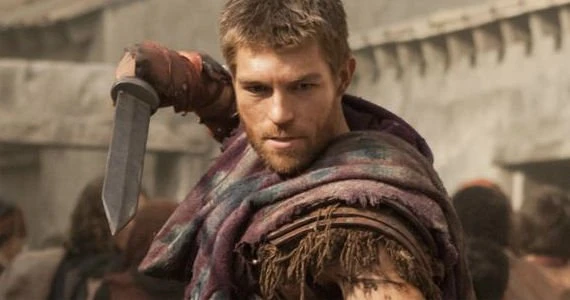
McIntyre soon established his authority in the role, but it is Whitfield whom most fans still visualise when they remember the show. In any case, although the last two seasons had their points of interest, they never really lived up to the social drama of 'Blood and Sand' and its prequel. War was simply not as entertaining as the fall of Capua's would-be power couple.
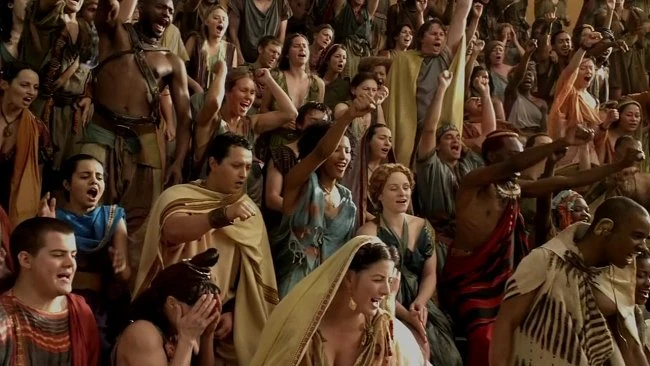
The greatest surprise is that 'Blood and Sand' actually achieved something important. More effectively than any self-consciously worthy project that wore its politics in its sleeve and tried to beat us over the head with a Message, it demonstrated the casual everyday evil of slavery, which is that it corrupts and brutalises both parties, the owners as well as the slaves.
Seen this show? How do you rate it?
Seen this show? How do you rate it?
Published on November 27th, 2019. Written by John Winterson Richards for Television Heaven.


